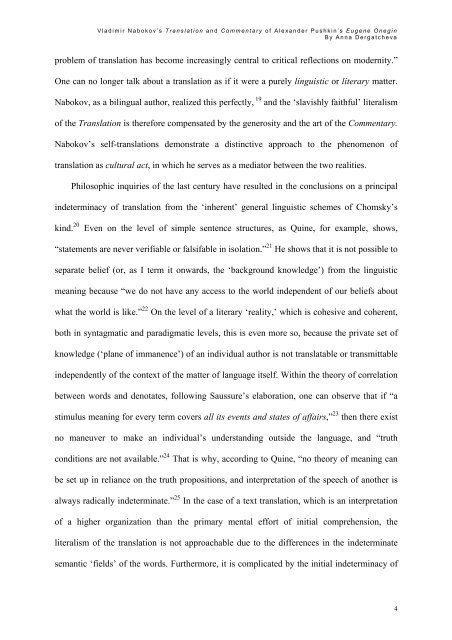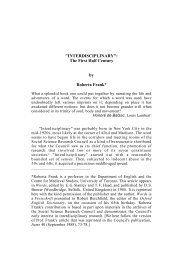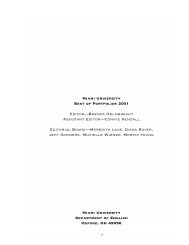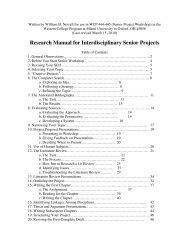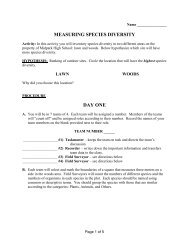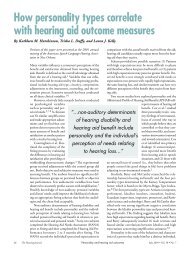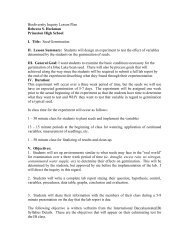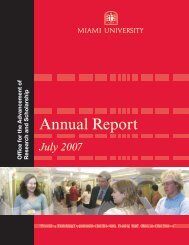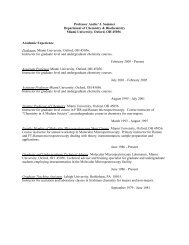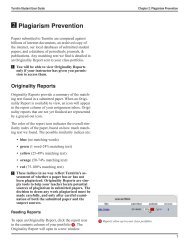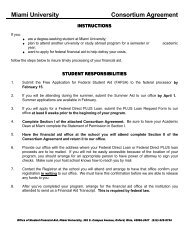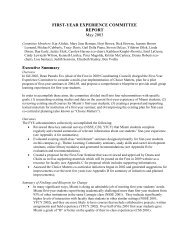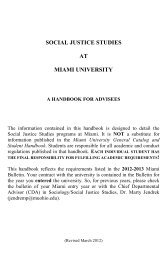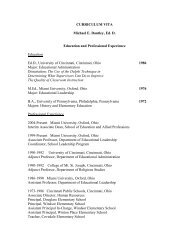Nabokov as Translator - units.muohio.edu
Nabokov as Translator - units.muohio.edu
Nabokov as Translator - units.muohio.edu
Create successful ePaper yourself
Turn your PDF publications into a flip-book with our unique Google optimized e-Paper software.
Vladimir <strong>Nabokov</strong>’s Translation and Commentary of Alexander Pushkin’s Eugene Onegin<br />
By Anna Dergatcheva<br />
problem of translation h<strong>as</strong> become incre<strong>as</strong>ingly central to critical reflections on modernity.”<br />
One can no longer talk about a translation <strong>as</strong> if it were a purely linguistic or literary matter.<br />
<strong>Nabokov</strong>, <strong>as</strong> a bilingual author, realized this perfectly, 19 and the ‘slavishly faithful’ literalism<br />
of the Translation is therefore compensated by the generosity and the art of the Commentary.<br />
<strong>Nabokov</strong>’s self-translations demonstrate a distinctive approach to the phenomenon of<br />
translation <strong>as</strong> cultural act, in which he serves <strong>as</strong> a mediator between the two realities.<br />
Philosophic inquiries of the l<strong>as</strong>t century have resulted in the conclusions on a principal<br />
indeterminacy of translation from the ‘inherent’ general linguistic schemes of Chomsky’s<br />
kind. 20 Even on the level of simple sentence structures, <strong>as</strong> Quine, for example, shows,<br />
“statements are never verifiable or falsifable in isolation.” 21 He shows that it is not possible to<br />
separate belief (or, <strong>as</strong> I term it onwards, the ‘background knowledge’) from the linguistic<br />
meaning because “we do not have any access to the world independent of our beliefs about<br />
what the world is like.” 22 On the level of a literary ‘reality,’ which is cohesive and coherent,<br />
both in syntagmatic and paradigmatic levels, this is even more so, because the private set of<br />
knowledge (‘plane of immanence’) of an individual author is not translatable or transmittable<br />
independently of the context of the matter of language itself. Within the theory of correlation<br />
between words and denotates, following Saussure’s elaboration, one can observe that if “a<br />
stimulus meaning for every term covers all its events and states of affairs,” 23 then there exist<br />
no maneuver to make an individual’s understanding outside the language, and “truth<br />
conditions are not available.” 24 That is why, according to Quine, “no theory of meaning can<br />
be set up in reliance on the truth propositions, and interpretation of the speech of another is<br />
always radically indeterminate.” 25 In the c<strong>as</strong>e of a text translation, which is an interpretation<br />
of a higher organization than the primary mental effort of initial comprehension, the<br />
literalism of the translation is not approachable due to the differences in the indeterminate<br />
semantic ‘fields’ of the words. Furthermore, it is complicated by the initial indeterminacy of<br />
4


